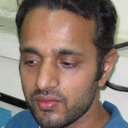Further studies on pulmonary oedema of high altitude. Abnormal responses to hypoxia of men who had developed pulmonary oedema at high altitude.
Кључне речи
Апстрактан
101 Indian soldiers, 57 of whom had developed pulmonary oedema of high altitude (POHA) and 44 who had not developed this condition in spite of being at high altitudes for over 2 years, were investigated for observing the differences, if any, in their reaction to acute hypoxic stress. Each subject was made to breathe a 10% hypoxic mixture for 5 min. Haemodynamic parameters like pulmonary artery pressure (systolic, diastolic and mean), brachial artery pressure, wedge pressure, cardiac output, minute ventilation, arterial oxygen saturation and oxygen uptake before and at the end of hypoxic breathing were estimated. In addition, results of the cold pressor test were recorded and the Vd/Vt ratio was estimated. The results obtained in the present study confirmed those obtained in our previous studies. In addition, it was observed that oxygen uptake was significantly higher and oxygen saturation lower after hypoxia in the POHA subjects than in the controls. Certain parameters for screening of subjects possibly susceptible to POHA have been suggested.


